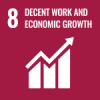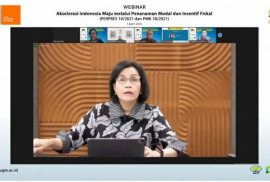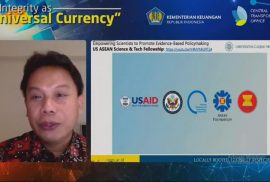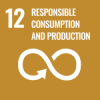UGM Faculty of Economic and Business, PP Kafegama, and ISEI Yogyakarta organized a webinar that invited Sri Mulyani, the Ministry of Finance (Menkeu), as a speaker on Thursday (1/4). The webinar raised a topic entitled, Investment and Fiscal Incentives: Perpres 10/221 and PMK 18/2021. She said that Indonesia’s human resources should have a high level of technology adoption and careful regional planning.
She also emphasized the importance of infrastructure and human resource (SDM) quality as the prominent basis to accomplish Indonesia as a developed country by 2045.
“The main prerequisite for Indonesia’s 2045 vision to become a developed country is to be able to provide more infrastructure and have quality human resources,” she said.
The issue of Presidential Regulation (Perpres) No. 10 of 221 concerning Investment Business, according to her, could encourage the business stakeholders to be competitive to support their business development. In this regulation, there was also a change on the negative investment list to be positive as an effort to enhance the investment climate in Indonesia.
Perry Warjiyo, the governor of Bank Indonesia (BI) also attended the webinar. He emphasized that all the economic stakeholders and policymakers should be optimistic to expedite Indonesia to become a developed country by 2045. Collective support from the government, BI, and OJK regarding the economic policy is necessary to accelerate the progress in accomplishing Indonesia Maju. This webinar also invited other speakers such as the chairman of KADIN Indonesia, Rosan P. Roslani, Director of Tax Regulation 1, Directorate General of Taxation, Heru Yoga Cermat, and DDTC Tax Consultant, Darussalam.






